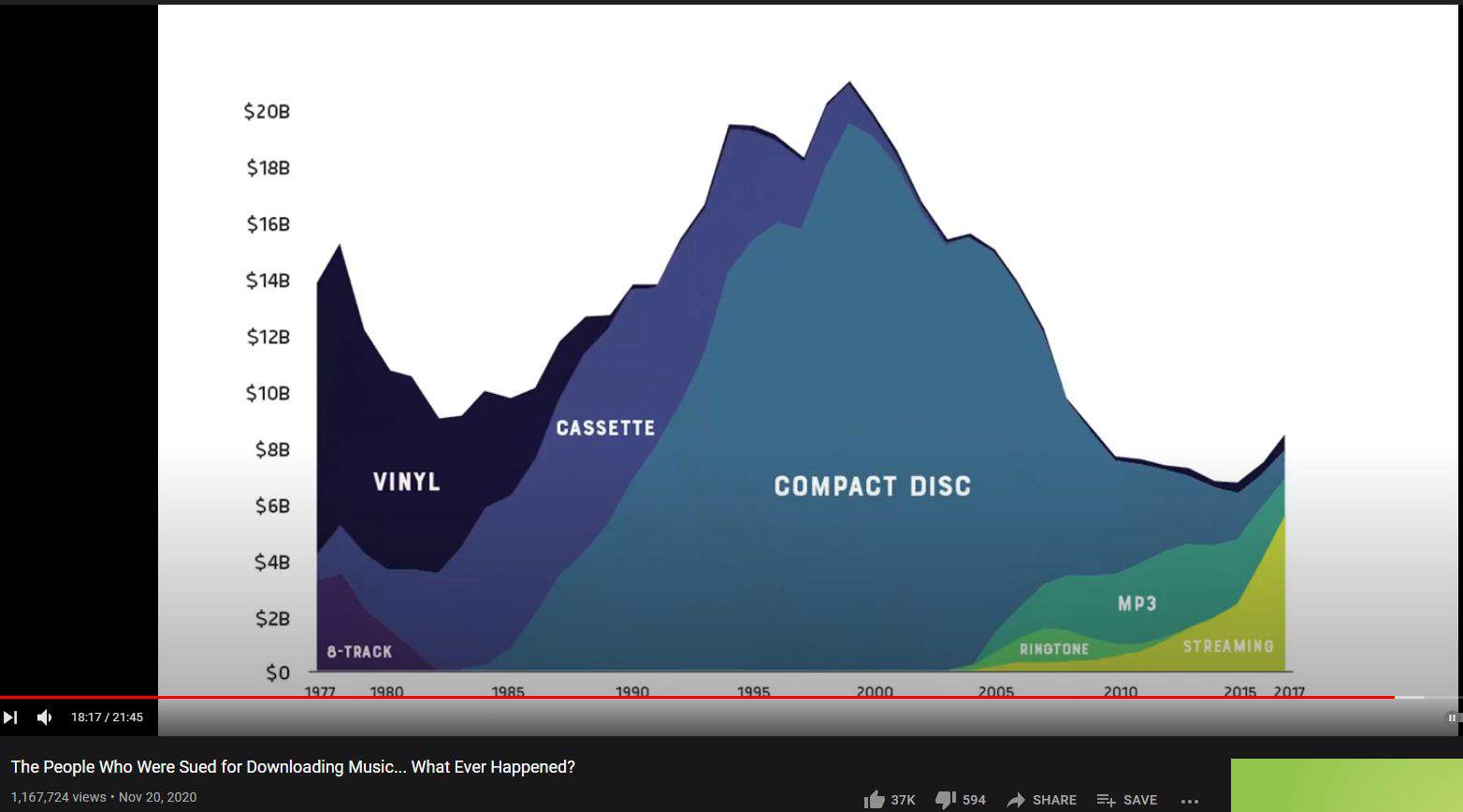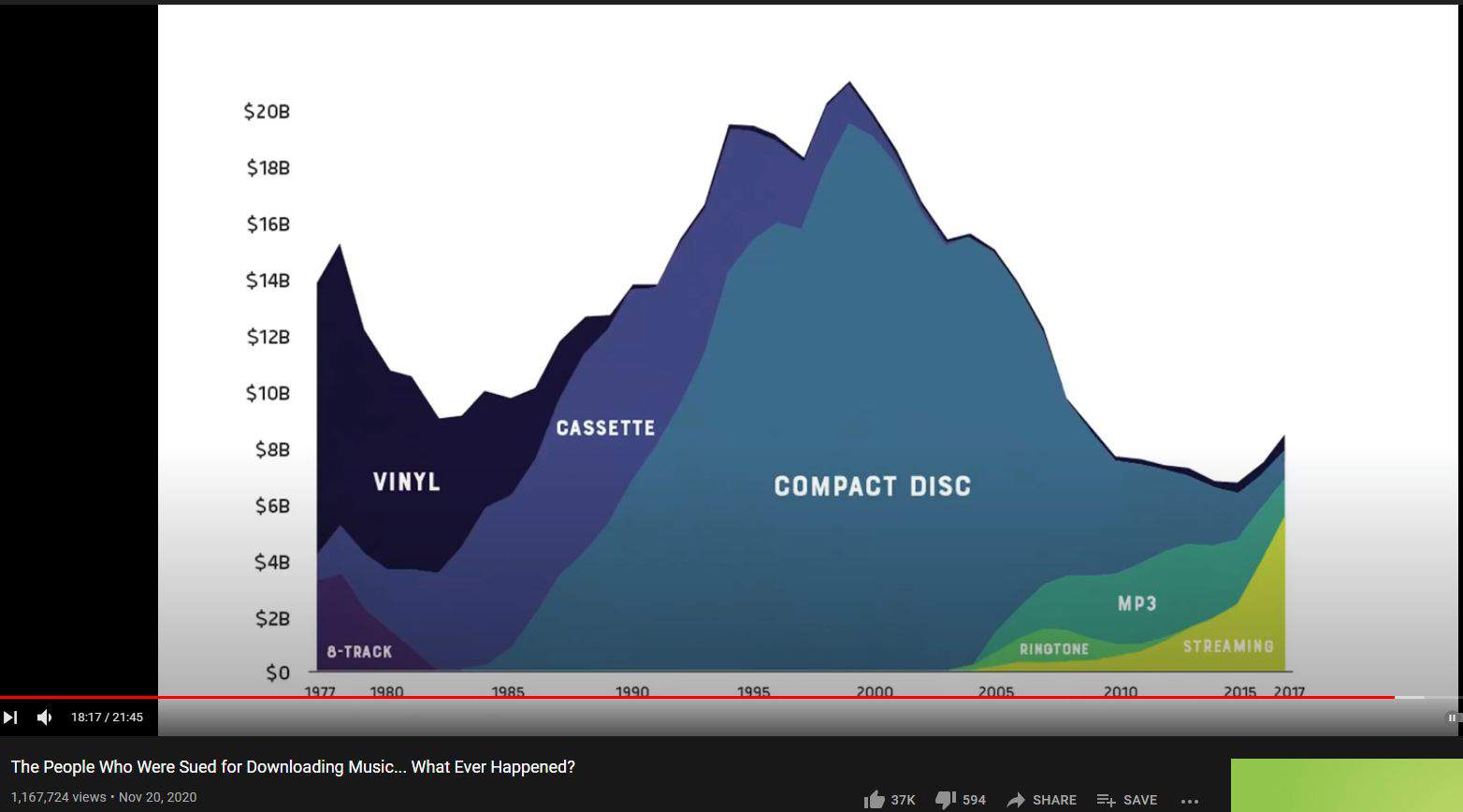The People Who Were Sued for Downloading Music
2020 will be the first year vinyl album sales outperform CD sales since 1980s.

The Recording Industry Association of America (RIAA) initiated numerous lawsuits against individuals for illegally downloading music in the early to mid-2000s. These lawsuits were part of a broader effort by the music industry to combat online piracy, which was seen as a significant threat to record sales at the time. However, the strategy of suing individual downloaders proved to be controversial and ultimately ineffective in curbing piracy. Here’s what happened:
1. Litigation Campaign: Between 2003 and 2008, the RIAA filed thousands of lawsuits against individuals accused of illegally sharing copyrighted music files on peer-to-peer (P2P) file-sharing networks like Napster, Kazaa, and LimeWire. These lawsuits targeted both high-profile cases and ordinary internet users, seeking damages ranging from thousands to millions of dollars.
2. Controversy and Backlash: The RIAA’s litigation campaign sparked significant controversy and public backlash. Many critics argued that the lawsuits were heavy-handed and disproportionate, targeting individuals—often teenagers or young adults—with exorbitant fines for relatively minor offenses. Some accused the RIAA of using litigation as a scare tactic to deter file-sharing rather than as a means of seeking fair compensation for copyright infringement.
3. Legal Challenges and Settlements: Some defendants in RIAA lawsuits chose to fight the charges in court, leading to a handful of high-profile legal battles. However, the majority of individuals targeted by the RIAA either settled out of court or defaulted, resulting in monetary settlements or consent decrees. These settlements typically involved payments of several thousand dollars and agreements to cease illegal file-sharing activities.
4. Shift in Strategy: Over time, the music industry shifted its approach to combating piracy away from litigation and towards other strategies, such as digital rights management (DRM), licensing agreements with streaming services, and educational campaigns promoting legal alternatives to piracy. The rise of legal streaming platforms like Spotify, Apple Music, and YouTube also provided consumers with convenient and affordable ways to access music legally.
5. Legacy and Impact: The RIAA’s lawsuits against individual downloaders had a limited impact on reducing online piracy in the long term. While they may have deterred some users from sharing copyrighted music files, they also fueled resentment towards the music industry and contributed to a broader cultural shift towards digital media consumption. Ultimately, the decline of P2P file-sharing networks and the rise of legal streaming services played a more significant role in reshaping the music industry’s landscape.
In summary, the RIAA’s lawsuits against individuals for illegally downloading music were a contentious and ultimately unsuccessful attempt to combat online piracy. While they generated headlines and raised awareness about copyright infringement, they did little to stem the tide of illegal file-sharing and ultimately led to a shift in the music industry’s strategy towards more collaborative and technology-driven solutions.
